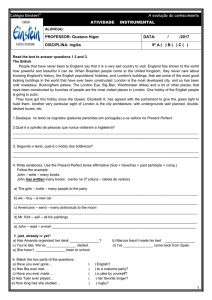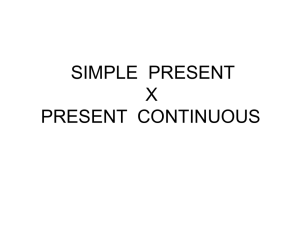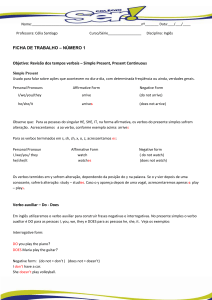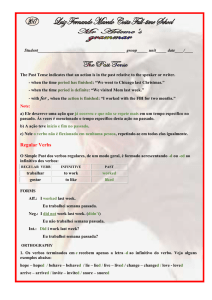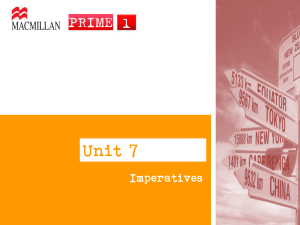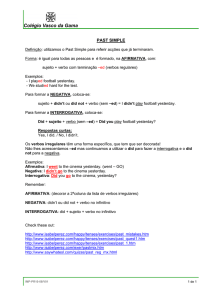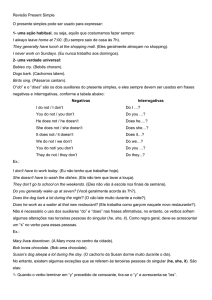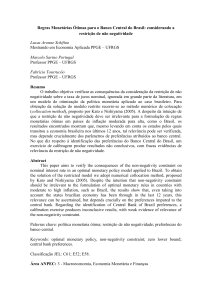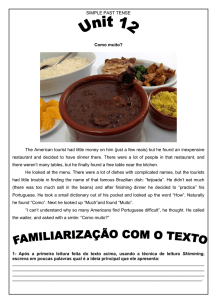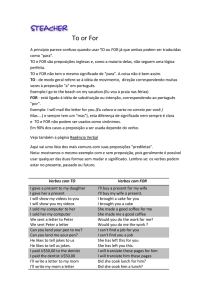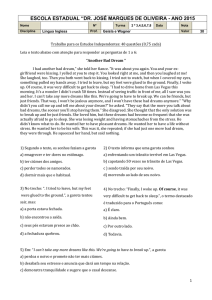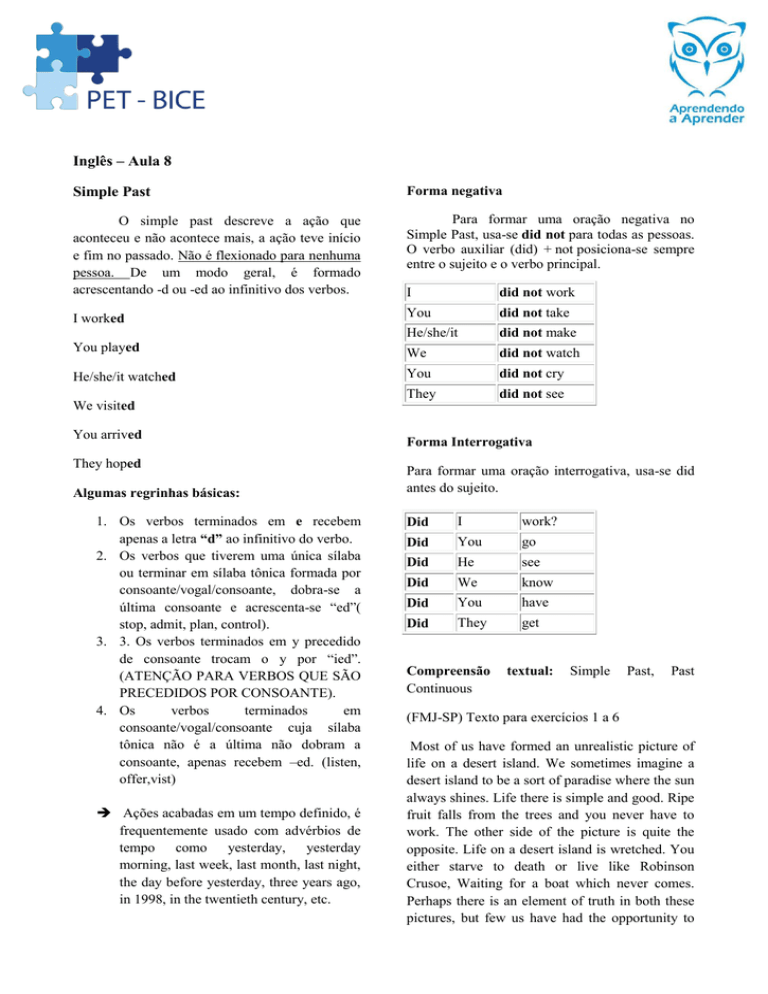
Inglês – Aula 8
Simple Past
Forma negativa
O simple past descreve a ação que
aconteceu e não acontece mais, a ação teve início
e fim no passado. Não é flexionado para nenhuma
pessoa. De um modo geral, é formado
acrescentando -d ou -ed ao infinitivo dos verbos.
Para formar uma oração negativa no
Simple Past, usa-se did not para todas as pessoas.
O verbo auxiliar (did) + not posiciona-se sempre
entre o sujeito e o verbo principal.
I
did not work
I worked
You
did not take
He/she/it
did not make
You played
We
did not watch
He/she/it watched
You
did not cry
They
did not see
We visited
You arrived
They hoped
Algumas regrinhas básicas:
1. Os verbos terminados em e recebem
apenas a letra “d” ao infinitivo do verbo.
2. Os verbos que tiverem uma única sílaba
ou terminar em sílaba tônica formada por
consoante/vogal/consoante, dobra-se a
última consoante e acrescenta-se “ed”(
stop, admit, plan, control).
3. 3. Os verbos terminados em y precedido
de consoante trocam o y por “ied”.
(ATENÇÃO PARA VERBOS QUE SÃO
PRECEDIDOS POR CONSOANTE).
4. Os
verbos
terminados
em
consoante/vogal/consoante cuja sílaba
tônica não é a última não dobram a
consoante, apenas recebem –ed. (listen,
offer,vist)
Ações acabadas em um tempo definido, é
frequentemente usado com advérbios de
tempo como yesterday, yesterday
morning, last week, last month, last night,
the day before yesterday, three years ago,
in 1998, in the twentieth century, etc.
Forma Interrogativa
Para formar uma oração interrogativa, usa-se did
antes do sujeito.
Did
I
work?
Did
You
go
Did
He
see
Did
We
know
Did
You
have
Did
They
get
Compreensão
Continuous
textual:
Simple
Past,
Past
(FMJ-SP) Texto para exercícios 1 a 6
Most of us have formed an unrealistic picture of
life on a desert island. We sometimes imagine a
desert island to be a sort of paradise where the sun
always shines. Life there is simple and good. Ripe
fruit falls from the trees and you never have to
work. The other side of the picture is quite the
opposite. Life on a desert island is wretched. You
either starve to death or live like Robinson
Crusoe, Waiting for a boat which never comes.
Perhaps there is an element of truth in both these
pictures, but few us have had the opportunity to
find
out.
Two men who recently spent five days on a
coral island wished they had stayed there longer.
They were taking a badly damaged boat from the
Virgin Islands to Miami to have it repaired.
During the
journey, their boat ____I______ to sink. They
quickly loaded a small rubber dinghy with food,
matches, and cans of beer and rowed for a few
miles across the Caribbean until they
____II______ at a tiny coral island. There were
hardly any trees on the island and there was no
water, but this did not prove to be a problem. The
men collected rainwater in the rubber dinghy. As
they had brought a spear gun with them, they had
plenty to eat. They caught lobster and fish every
day,and, as one of them put it 'ate like kings'.
When a passing tanker rescued them five days
later, both men were genuinely sorry that they had
to leave.
Baseando-se no texto, assinale a alternativa
correta.
1) A lacuna I no texto deve ser preenchida
por:
a) Begun
b) Begin
c) Beginning
d) Wil began
e) Began
2) A lacuna II no texto deve ser preenchida
por:
a) Arrived
b) Arrive
c) Will arrive
d) Arriving
e) Had arrived
3) Na sentença “as one of them put it”, o
pronome them refere-se a:
a) Lobster and fish
b) Rain-water
c) Rubber dinghy
d) The two men
e) Kings
4) Na expressão “ate like kings” a palavra
like:
a) Tem como tradução, em português, a
gostam
b) Indica semelhança
c) Indica probabilidade
d) Poderia ser substituída, sem mudança de
sentido, por different from
e) Introduz um exemplo
5) De acordo com o segundo parágrafo do
texto, os dois homens mencionados:
a) Estavam ansiosos para serem
resgatados da ilha
b) Naufragaram enquanto levavam um
barco defeituoso para ser consertado
c) Estavam a caminho de Miami em um
bote de borracha
d) Recusaram o resgate por não
desejarem embarcar em um navio
petroleiro
e) Faziam uma regata em barco a remo
pelas ilhas do Caribe.
6) Enquanto na ilha, os dois homens
alimentaram-se :
a) De pesca diária
b) Das frutas que caiam das árvores
c) Dos suprimentos encontrados da ilha
d) Com a ajuda de um navio petroleiro
e) De pequenos animais encontrados na
ilha
Escolha a alternativa correta:
1) She ___________ late because there was an
accident on the road.
a) Arrived
b) Had arrived
c) Arrove
d) Was arriving

